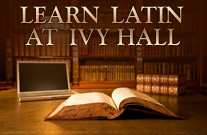
|

Pope John Paul II has noted that:
"Faith in Christ who became incarnate in history does not only transform individuals outwardly, but also regenerates peoples and their cultures… Faith in Christ gives cultures a
|
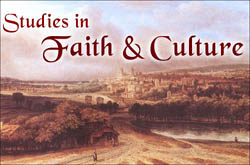 |
new dimension, that of hope in God's kingdom. It is the vocation of Christians to instill in the heart of cultures this hope of a new earth and a new heaven. For when hope fades, cultures die. Far from threatening or impoverishing them, the Gospel increases their joy and beauty, freedom and meaning, truth and goodness."
- Pope John Paul II March 14, 1997 address to the Pontifical Council for Culture. |
This series will investigate the dynamic relationship that exists between faith and culture through reflection on the institutions that have been shaped by them (i.e. the university system, charitable organizations, the arts and sciences, and the political and moral framework of society) and the insights of some of the great scholars of culture in the 20th century, including Christopher Dawson, Josef Pieper, Hans Urs Von Balthasar and Pope John Paul II.

Pope John Paul II as Prophet of Life in a Culture of Death
DATE: October 10th, 2003
Time: 7:30 p.m. followed by a reception
Speaker: Dr. Damian P. Fedoryka, Professor of Philosophy, Ave Maria College
Topic: "Pope John Paul II as Prophet of Life in a Culture of Death" in Commemoration of the 25th Anniversary of his Papacy on October 16th.
Cost: $15/person and $5 for students with ID
|
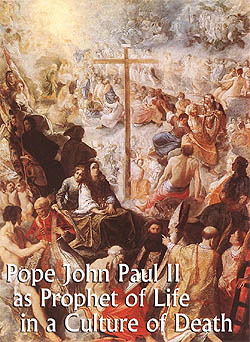 |
The prophetic character of John Paul's teaching lies in the fact that he has given us a deeper and clearer vision of the truth about man, "ever ancient and ever new," at a time when man and his culture are threatened by death. A leitmotif of John Paul II's teachings and a key to his thought is the concept of the "gift." It allows him to develop more deeply the understanding of the human person as person and to do so in a way that responds to the skepticism and relativism of the age. The personalism of the Pope, grounded in the gift character of human existence, allows him to uncover the root causes and nature of the culture of death rather than simply dealing with the symptoms. It also indicates that the vivifying principle of a culture of life is the "sincere gift of self."
|
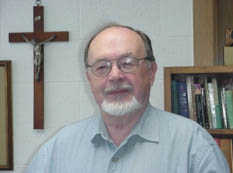 |
After an undergraduate education at the Unviersity of Louvain, Belgium, Damian P. Fedoryka obtained his graduate degrees from Fordham University and the University of Salzburg, Austria. Currently Professor of Philosophy at Ave Maria College in Ypsilanti, Michigan, he has previously served as President of Christendom
|
College and has taught at several universities, including Franciscan University of Steubenville. He has also done extensive lecturing and teaching in post-Communist Ukraine.
His professional interests include the personalism of Wojtyla/John Paul II and the philosophical analysis of the cultures of life and death. He has been involved in pro-life activities since 1970.
|
Damian and his wife, Irene, a graduate of the Julliard School of Music, are the parents of ten home-schooled children. All ten children are musically trained and have played in family ensembles of varying sizes across the U.S. and Europe, including the Kennedy Center and Wolftrap.Several of his children have formed a celtic band name Scythian. Concert and music information is available at www.scythianmusic.com
 |
Cultural Illiteracy and the Decline of the West |
DATE: November 14, 2003
Time: 7:30 p.m. followed by a reception
Speaker: Father George Rutler, Author and Pastor at the Church of the Savior, New York City
Topic: Cultural Illiteracy and the Decline of the West
Cost: $15/person and $5 for students with ID
Father Rutler will address the collapse of the liberal arts in education and its consequences for perceiving and accepting the logic of Catholicism.
|
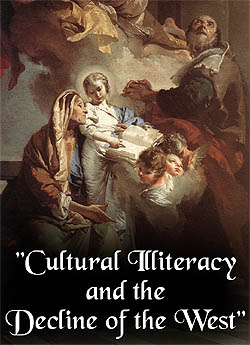 |
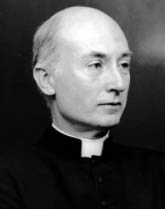 |
Father George Rutler was ordained to the diaconate in Rome by His Eminence William Cardinal Baum in 1980 and received priestly ordination in St. Patrick's Cathedral at the hands of His Eminence Terence Cardinal Cooke in 1981. He served as Associate Pastor of St. Joseph's in Bronxville; Our Lady of Victory in the Wall Street area; and St. Agnes, in Manhattan. For ten years he was National Chaplain of Legatus, the organization of Catholic business leaders and their families, engaged in spiritual formation and evangelization. For 13 years his weekly television
|
program has been broadcast worldwide on EWTN. Father has lectured and given retreats in many nations, frequently in Ireland and Australia. Cardinal Egan appointed him Pastor of the Church of Our Saviour, in September 17, 2001.
Born in 1945 and reared in the Episcopal tradition in New Jersey and New York, Father Rutler was an Episcopal clergyman for nine years, and the youngest Episcopal rector in the country when he headed the Church of the Good Shepherd in Rosemont, Pennsylvania. He was received into the Catholic Church in 1979 and was sent to the North American College in Rome for seminary studies. Father Rulter holds several degrees from the Gregorian and Angelicum Universities in Rome, including the Pontifical Doctorate in Sacred Theology and studied at the Institut Catholique in Paris.
Father Rutler contributes to numerous scholarly and popular journals and has published 14 books on theology, history, cultural issues, and the lives of the saints, and also one book on sports, as a member of the U.S. Squash Racquets Association. A list of Father Rutler's books and tapes is available at http://www.oursaviournyc.org/publication.htm
read more about the Faith and Culture lecture series
Modern Physics and Ancient Faith
DATE: December 12, 2003
Time: 7:30 p.m. followed by a reception
Speaker: Dr. Stephen Barr, Professor of Physics, Bartol Research Institute, University of Delaware
Topic: Modern Physics and Ancient Faith
Cost: $15/person and $5 for students with ID
The modern period has seen much public debate and tension between faith and science. In his book Modern Physics and Ancient Faith, Stephen Barr demonstrates that what is really at war with religion is not science itself, but a philosophy called scientific materialism. He argues that the great discoveries of modern physics are more compatible with the central teachings of Christianity and Judaism about God, the cosmos, and the human soul than with the atheistic viewpoint of scientific materialism.
|  |
|
Scientific materialism grew out of scientific discoveries made from the time of Copernicus up to the beginning of the twentieth century. These discoveries led many thoughtful people to the conclusion that the universe has no cause or purpose, that the human race is an accidental by-product of blind material forces, and that the ultimate reality is matter itself. Barr contends that the revolutionary discoveries of the twentieth century run counter to this line of thought. He uses five of these discoveries- the Big Bang theory, unified field theories, anthropic coincidences, Gödel's Theorem in mathematics, and quantum theory- to cast serious doubt on the materialist's view of the world and to give greater credence to Judeo-Christian claims about God and the universe.
|
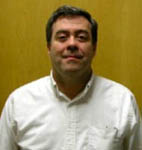 |
Dr. Stephen Barr received his undergraduate degree from Columbia University and his graduate degrees from Princeton University. After post-doctoral work at the University of Pennsylvania, he became a research assistant professor at the University of Washington (1980-85) and associate physicist at Brookhaven National Laboratory (1985-87). He joined the Bartol Research Institute in September 1987. His research
|
|
has spanned many areas of theoretical particle physics, but with special emphasis on grand unified theories, theories of CP violation, the problem of the origin of quark and lepton masses, theories with extra space-time dimensions (such as Kaluza-Klein and superstring theories), and the interface between particle physics and cosmology. |
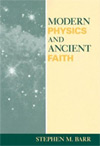 |
His book, Modern Physics and Ancient Faith (University of Notre Dame Press, 2003), has received wide acclaim. "A brilliant and authoritative defense of Biblical faith in the light of contemporary science. . . . I know of no other book that makes the case against materialism so lucidly, honestly, and deftly." -- Owen Gingerich, Harvard-Smithsonian Center for Astrophysics. "A brilliant defense of the integrity of science in the teeth of its most powerful modern bias, by telling the exciting story of the rise, complacency and fall of scientific materialism." -- Michael Novak.
read more about the Faith and Culture lecture series
|
|
|













